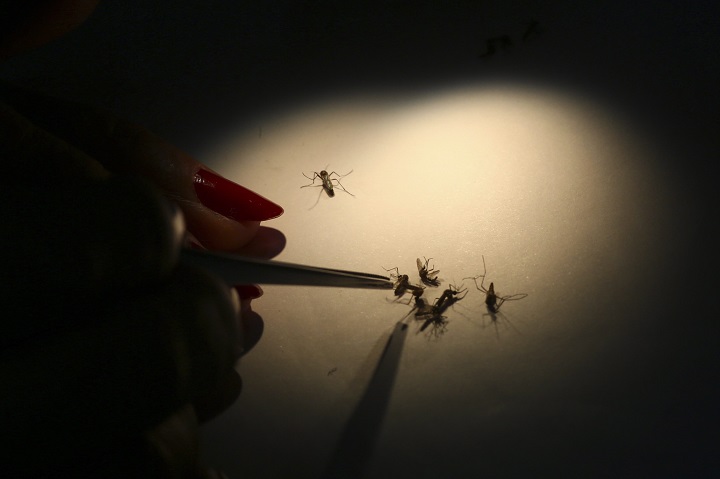HANOI, Vietnam – Vietnam has been battling raging dengue fever outbreaks with more than 10,000 new infections reported over the past week stretching its medical system.

The number of admitted patients represents a 42-per cent increase over the same period last year along with seven more deaths, the Ministry of Health said Friday. A total of 90,626 people have been infected, of whom 76,848 are hospitalized and 24 have died.
The ministry attributed the rise of dengue outbreaks to higher temperature, more rains and rapid urbanization that promote the breeding of virus-carrying mosquitoes.
Dr. Vu Minh Dien of the National Hospital of Tropical Diseases in Hanoi, where the most severe cases were being treated, said that 800-1,000 people have been checking in daily complaining of fever. That compares to only several cases that reported to the hospital in June and July last year, he said.
READ MORE: Dengue fever outbreak kills 16, sickens 12,000 in Honduras

Get daily National news
Dien said some 300 dengue patients were being treated, stretching the hospital’s resources, including longer working hours without weekend leaves.
Tran Thi Xuyen, a fruit and vegetable seller in a small market in Son La province, said she did not know how she contracted dengue fever, which also infected her fellow saleswoman.
VIDEO: Dengue fever & beating the fear of flying

“I took anti-biotics prescribed by the local district hospital for four days, but the fever did not go away and I admitted myself to this hospital where doctors said I had dengue fever,” she said from her hospital bed.
READ MORE: Hawaii Island declares state of emergency over dengue fever outbreak
There is no cure for any of the four strains of the mosquito-borne virus that causes high fever, exhaustion and in some cases a vicious skin rash. Patients most at risk of dying are the elderly, children or those with other medical complications.
Hanoi and the southern commercial hub of Ho Chi Minh City are the hardest hit.
The government on Thursday urged residents to actively engage in killing mosquitoes and mosquito larvae, particularly at construction sites and housing for workers.
“The joint efforts by the people as well as our political system in searching and eliminating mosquito larvae, emptying water containers, which are fertile for larvae to breed, and spraying chemicals to kill mosquitoes are key factors to curb dengue fever,” Dien said.







Comments